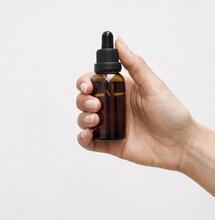Suffering from Complaints? - Try Medicinal Cannabis.

Nobody would believe twenty or thirty years ago that cannabis would become the go-to choice of medicine for so many people. It is estimated that in the U.S. right now there are 3.6 million state-legal medical cannabis patients, and probably this number is slightly higher than that. While cannabis has been used for healing for millennia, its prohibition in the early 20th century meant that the plant would not be so easily accessible. Decriminalization solved that problem in the last decade, while new technologies have helped derive an array of new high-quality medicinal cannabis goods. Whether you're wondering if medicinal cannabis is the right choice for you, we explain in this article how it works, how it's used, and how to get access to it.
How Does Medicinal Marijuana Work?
The human body already produces marijuana-like chemicals that affect pain, inflammation, and other background processes. When marijuana enters the body, it sometimes enhances those natural chemicals.
How marijuana improves the work of those chemicals also depends on how it is dispensed in the body. There are different routes for cannabinoids such as THC (psychoactive) and CBD (non-psychoactive) to enter the system. Marijuana can be smoked, vaporized, taken as a tincture, eaten as a gummy, or applied to the skin.
The health condition you want to treat may dictate the method of marijuana consumption. For instance, local pains may be best treated with transdermal patches applied directly to the pain spot. Respiratory conditions such as asthma also determine the consumption method in a way that a person is advised not to smoke but rather ingest marijuana as edible or extract.
New users typically start medicinal marijuana treatments in small doses, after which the dose is gradually increased. A slow and gradual onset is the best way to gauge how your body reacts to cannabis. After a while, you build some tolerance to THC, CBD, and other cannabinoids, which usually results in increasing the doses. A tolerance break or T break is when marijuana users stop consumption for a while so that the system cleans from the excess build-up of cannabinoids. This is what resets cannabis tolerance.
The Main Reasons People Ask for Prescription?
According to a 2020 study, anxiety, insomnia, chronic pain, and depression are the four most common health conditions Americans use medicinal cannabis. The most common forms of use for all health conditions were smoking and edibles, followed by vaping, concentrate, and topical, according to the same research.
While women are more likely to use marijuana for conditions such as PTSD, insomnia, anxiety, and migraines, pain is the main reason why overall people ask for medical marijuana prescriptions. It could be pain from headaches, back pain, knee pain, shoulder pain, or something more serious, such as pain from cancer.

Do You Always Need a Doctor's Consent?
Not all people who use cannabis for medical reasons always inform or consult their doctor. According to some estimates, one-third of patients avoid telling their doctors anything at all about their medical marijuana use.
Whether doctors always support medical cannabis use is also a good question. Cannabis is still a new thing in contemporary medical practice, and many health practitioners are not trained in how to administer cannabis goods and medicines. While most doctors update their knowledge on how cannabis medicines work and are willing to see how it helps their patients, there is still a smaller fraction of practitioners who are not supportive of the idea of cannabis use.
If you live in a state where medical marijuana is legal (and the chances are that you do), you can talk with your doctor and apply for MMJ, a medical marijuana card. If you have this card, you can purchase legal marijuana from a local medical cannabis dispensary.
Overall, states that permit medicinal marijuana allows it for treating the following conditions:
- Epilepsy and seizures
- Cancer
- Severe nausea
- Anorexia
- HIV/AIDS
- Multiple sclerosis (MS)
- Amyotrophic lateral sclerosis (ALS)
- Chronic pains, including fibromyalgia and migraines
- Crohn's disease
- Parkinson's disease
Not all states will have all of these health conditions on their green list, but most of them do. Conservative states are known to limit MMJ application to only one or several diseases. Epilepsy and seizures usually is on the green list everywhere.

When is the Right Time to Try Medicinal Cannabis?
A lot of people decide they are going to try medicinal cannabis when nothing else works. This is especially true with patients who suffer from chronic conditions and are generally more accustomed to traditional western medicines such as prescription pills. Fortunately, the medical cannabis industry now also manufacturers cannabis in the form of tablets or powder, which is convenient even for the biggest cannabis skeptics.
If you are struggling with a chronic health condition, it is never a bad idea to get evaluated by your doctor about whether medical cannabis can help in your case. Consulting a physician is good principally because you may be taking another therapy that will not interact so well with cannabis. For example, prescription pills for rheumatoid arthritis may not work well with CBD oil. The body may not respond so well, and you may experience low blood pressure and dizziness as a side effect. This doesn't necessarily mean that CBD oil is not suitable for treating arthritis, it's just that some organisms better respond to the pill therapy than cannabis oils.
Perhaps it's easier to gauge whether cannabis is the right medicine for you if you suffer from conditions like insomnia. There are a lot of health supplements that are supposed to calm the body and stimulate a better night's sleep. There is melatonin, valerian tea, chamomile and lavender, magnesium + B6 therapy, so on and so forth. But if you see that any of these supplements have limited effects and do not improve your sleep, then what's the harm of trying out cannabis? There's certainly no harm. For the best results, you can look for strains that are engineered to calm the mind and help fall asleep easier.
It's never the wrong time to try a medicine that has a diverse profile of healing properties. The trick with marijuana is usually in the dosage. As mentioned earlier, a slow and gradual consumption in the beginning or microdosing, can help you determine whether this is the right medicine for your complaint.





















